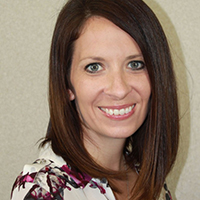Retake 5: Alex Jackson Nelson, Blue Cross’ Gender Services Consultant
November 16, 2022
*Editor's Note: in November 2022, we sat down with Alex Jackson Nelson, Blue Cross’ gender services consultant, to hear more about the significance of Transgender Awareness Week. In our conversation, Alex shared his personal perspective on the importance of gender-affirming healthcare and what his hopes are as we work toward a more equitable future where everyone can achieve their healthiest life.
In August 2023, we are reposting this piece as Blue Cross and Blue Shield of Minnesota is seeking a Gender Services Consultant to join this growing team.*
In this remote position, the gender services consultant will be responsible for supporting the needs of transgender and gender non-binary members across the continuum of care. Learn more about this important opportunity and consider joining the #1 health plan in Minnesota.

The gender services team is hiring! Visit https://bit.ly/47KHTVO for more information.
Can you tell us more about yourself and your role at Blue Cross?
Here at Blue Cross, I am the Gender Services Consultant, meaning I provide guidance and support to our transgender and nonbinary members and their families, helping manage care and navigate insurance.
I’m also part of the transgender community, having been assigned female at birth and coming out as transgender in the late 1990s. Since that time, I have experienced incidences of prejudice, discrimination and violence that is far too common in our community. Because of this lived experience, I’m able to forge deep and authentic connections with our transgender members.
How did you get involved in this work?
My passion for this work is rooted in a drive toward health equity, specifically within the LGBTQ community. I have both personal and professional experience with navigating this system and addressing the barriers our community regularly faces, especially related to receiving medically necessary care and getting that medically necessary care covered.
What is one misconception you’d like to dispel?
If I could have folks take away one thing from this article, it would be the understanding that gender-affirming care is as necessary as other medical care. A common misconception is that this care is elective or cosmetic – and that is not the reality.
For instance, I’ll sometimes hear people within the health system use language about a transgender person wanting a procedure versus needing a procedure. This is often a result of not understanding the unique needs of the community. In other conversations about medical care, it wouldn’t be suggested that, for example, a patient would need to endure a two-year waiting list for a heart valve replacement or treatment for an infection with a covered provider. But those conversations happen within the realm of gender-affirming care. And if we want to advance equity, it is essential to recognize that gender-affirming care is medically necessary and lifesaving.
What is the impact gender-affirming care?
A lack of gender-affirming care can have a range of negative impacts on someone who is transgender – the most extreme of which are literally life and death. According to the Trevor Project, 45% of LGBTQ youth seriously considered attempting suicide in the past year, and nearly 1 in 5 transgender and nonbinary youth attempted suicide.
If a transgender person encounters disrespect, a lack of empathy or a denial of their identity as they’re trying to navigate this complicated system of care, it has a compounding impact on their mental health. That’s why it is critical that people receive medically necessary gender-affirming care, and that they have the support they need to navigate the complex health system.
What can someone do to be an ally to the transgender community?
For folks within the health system, we need to be curious and willing to explore new ways to address systemic issues that contribute to the inequities facing the transgender community.
And something that everyone can do is to believe people when they tell you who they are. It may sound simple, but it’s incredibly impactful. Committing to being respectful, honoring people’s identities and listening to learn are key to being an ally and advancing health equity for everyone, including the transgender and nonbinary community.
For more information visit Blue Cross – Gender Care and Coverage.


